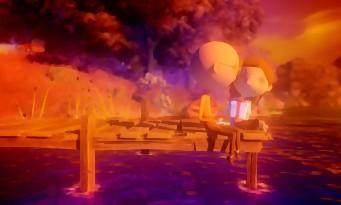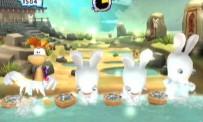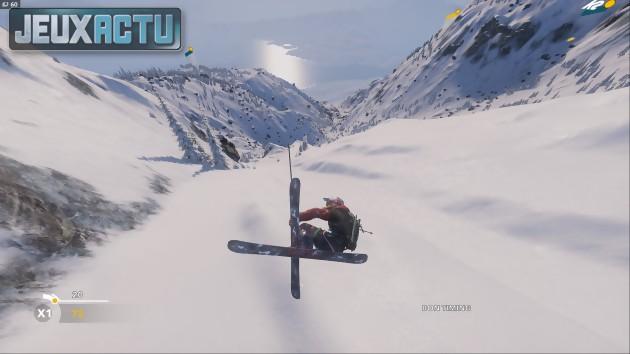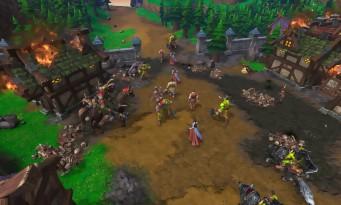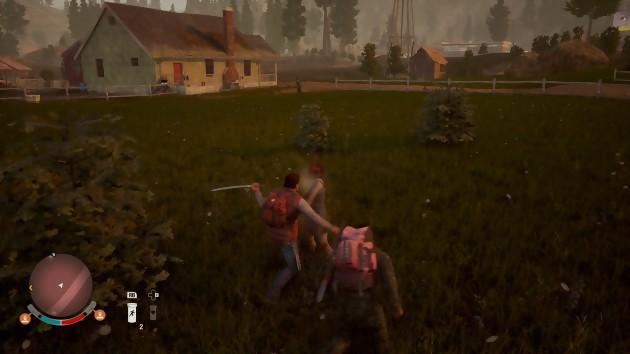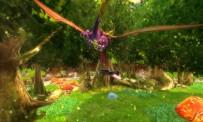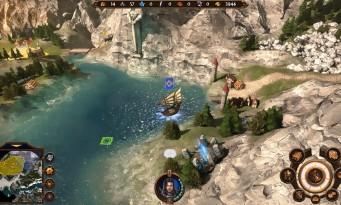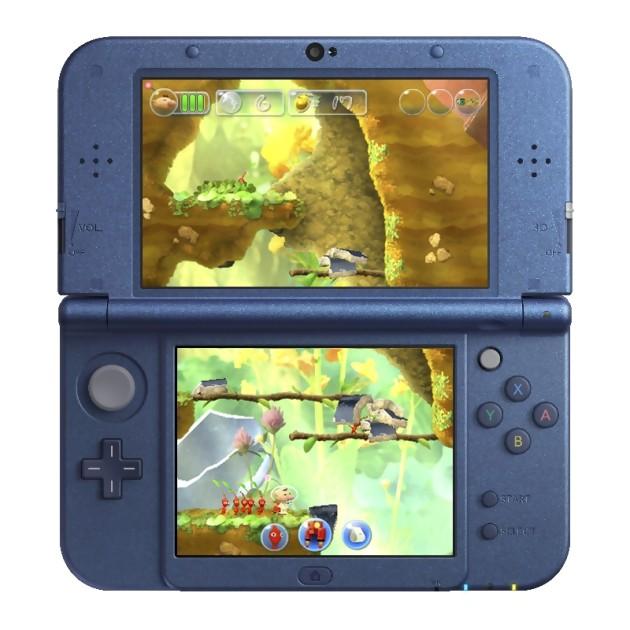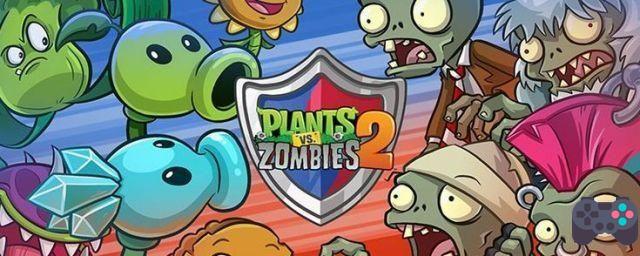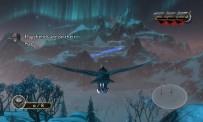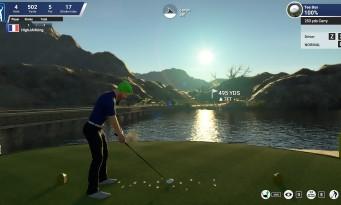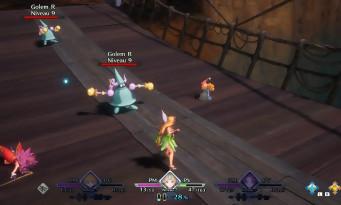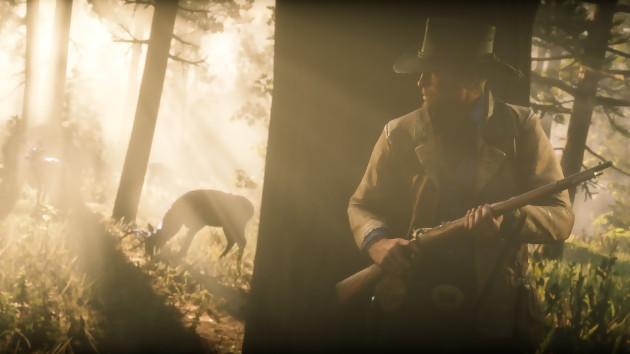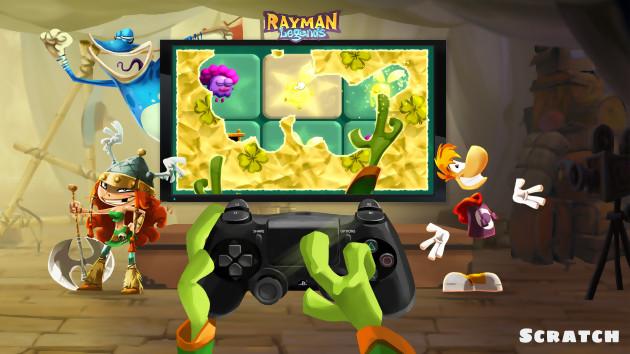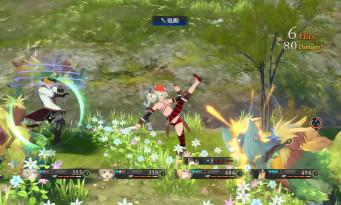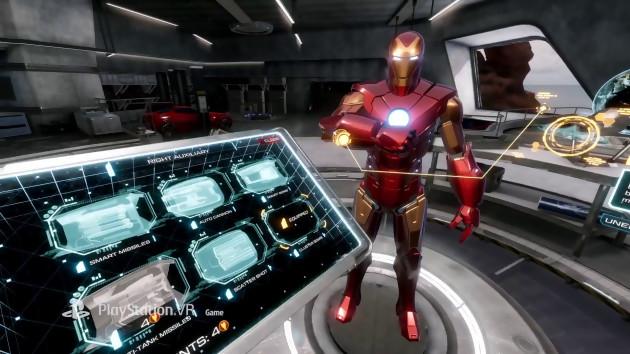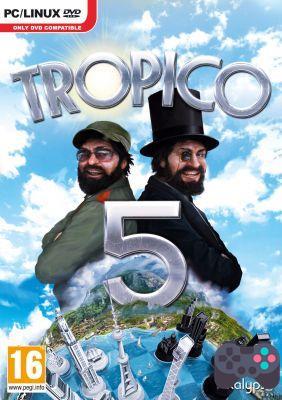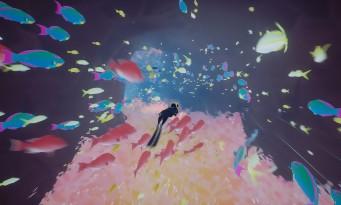 Giant squids, you will indeed come across them in ABZÛ. But also manatees, sea turtles, sharks, whales, whale sharks, killer whales, dolphins, Goliath groupers, Manta rays, multiple schools of fish and many other underwater creatures. . At first glance, the game could therefore pass for a simple diving simulator, or even an advanced aquatic screen saver. But, fortunately, it is much more than that. Without any dialogue or text, ABZÛ tells us a real story and imposes a few characters, in particular the diver embodied by the player and a great white shark, without ever making any formal presentation. Along the way, you will even be entitled to a few turnarounds, all the more unexpected as they are discreet enough to escape the understanding of an inattentive player. In other words, the adventure has a real subtext, which is an ecological fable, in the primary and non-politically hackneyed sense of the term, and advocates the superiority of the living world over machines and technology.
Giant squids, you will indeed come across them in ABZÛ. But also manatees, sea turtles, sharks, whales, whale sharks, killer whales, dolphins, Goliath groupers, Manta rays, multiple schools of fish and many other underwater creatures. . At first glance, the game could therefore pass for a simple diving simulator, or even an advanced aquatic screen saver. But, fortunately, it is much more than that. Without any dialogue or text, ABZÛ tells us a real story and imposes a few characters, in particular the diver embodied by the player and a great white shark, without ever making any formal presentation. Along the way, you will even be entitled to a few turnarounds, all the more unexpected as they are discreet enough to escape the understanding of an inattentive player. In other words, the adventure has a real subtext, which is an ecological fable, in the primary and non-politically hackneyed sense of the term, and advocates the superiority of the living world over machines and technology.
The artistic direction manages to reconcile a real personality with a certain realism, uses light to magnify the underwater scenery, and multiplies the colors to make each scene a sumptuous tableau.
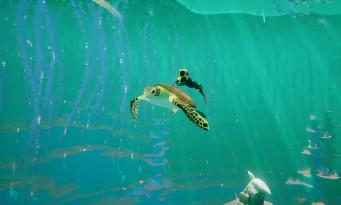 And it doesn't matter if some players miss the message, deliberately diffused, because even those will be delighted by all the other qualities of the title. Starting of course with the stylized graphics of the most beautiful effect. The artistic direction manages to reconcile a real personality with a certain realism, uses light to magnify the underwater scenery, and multiplies the colors to make each scene a sumptuous tableau. A look at our homemade screenshots should be enough to convince you. And again, they do not reflect the quality of the animations, whether it is those of the schools of fish, which we take pleasure in crossing, those of the large marine animals, or even those of the hero . The movements of the latter are of exemplary fluidity and, associated with flawless maneuverability, they help to transform the slightest movement, even a little controlled, into a real graceful ballet.
And it doesn't matter if some players miss the message, deliberately diffused, because even those will be delighted by all the other qualities of the title. Starting of course with the stylized graphics of the most beautiful effect. The artistic direction manages to reconcile a real personality with a certain realism, uses light to magnify the underwater scenery, and multiplies the colors to make each scene a sumptuous tableau. A look at our homemade screenshots should be enough to convince you. And again, they do not reflect the quality of the animations, whether it is those of the schools of fish, which we take pleasure in crossing, those of the large marine animals, or even those of the hero . The movements of the latter are of exemplary fluidity and, associated with flawless maneuverability, they help to transform the slightest movement, even a little controlled, into a real graceful ballet.
ABSOLUTE POWER
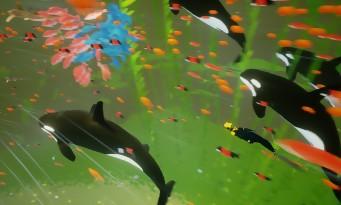 Everything is supported by symphonic music that is often light, sometimes lyrical, but always captivating. The composer is none other than Austin Wintory, whose work on Journey has already received acclaim in the past. These elements (graphics, animations, music) would already be enough on their own to make ABZÛ a must, because the simple fact of evolving in the sets is a real pleasure in itself. But, as we have seen, the game also has a real story and even some nice little gameplay elements. You can thus ride most marine animals at will and direct them within a certain limit. The satisfaction of communing for a few moments with them goes hand in hand with that of giving them back their freedom. More prosaically it is also possible to pick up different shells which, as a "modern" video game requires, serve as collectables. To recover small mechanical partners who help us in our progress. To trigger a few simple mechanisms, which are generally used to open doors. Or activate different "nests" to release new creatures in the water. Even more optional, but it would be wrong to deprive yourself of it, the game also offers us meditation points. The hero sits there cross-legged, and can then closely observe each underwater animal present in the scene, the rotation of the camera around the observed creature as well as the passage from one species to another being left to player discretion.
Everything is supported by symphonic music that is often light, sometimes lyrical, but always captivating. The composer is none other than Austin Wintory, whose work on Journey has already received acclaim in the past. These elements (graphics, animations, music) would already be enough on their own to make ABZÛ a must, because the simple fact of evolving in the sets is a real pleasure in itself. But, as we have seen, the game also has a real story and even some nice little gameplay elements. You can thus ride most marine animals at will and direct them within a certain limit. The satisfaction of communing for a few moments with them goes hand in hand with that of giving them back their freedom. More prosaically it is also possible to pick up different shells which, as a "modern" video game requires, serve as collectables. To recover small mechanical partners who help us in our progress. To trigger a few simple mechanisms, which are generally used to open doors. Or activate different "nests" to release new creatures in the water. Even more optional, but it would be wrong to deprive yourself of it, the game also offers us meditation points. The hero sits there cross-legged, and can then closely observe each underwater animal present in the scene, the rotation of the camera around the observed creature as well as the passage from one species to another being left to player discretion.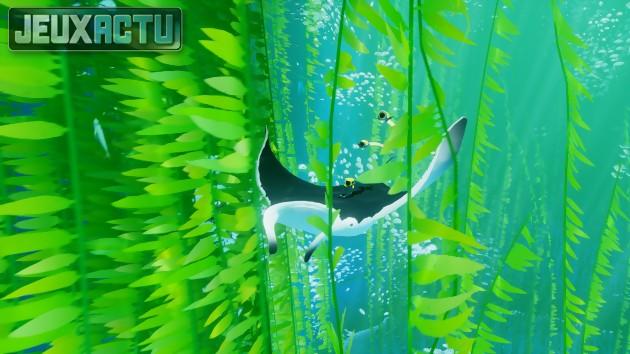
These small breaks allow you to relax even more, and are counterbalanced by one or two more nervous sequences, in particular when the diver finds himself forced to follow the rhythm of an ocean current. The opportunity is also given to us here to salute the level design, which hides loading times admirably well (which are therefore non-existent for the player) and brilliantly avoids the pitfall of an underwater world that is too vast or too compartmentalized. You never feel too cramped and never lost. The light sources are notably used with intelligence to discreetly guide the player. Immediate counterpart of this fluidity in the progression, the lifespan is extremely short, since two hours can be enough to see the end of the adventure. But this point is still to be put into perspective because it seems obvious that most players will regularly dive back into the waters of ABZÛ, whether to unlock all the successes, find all the shells, do a little "meditation", or everything simply for the pleasure of diving.
These small breaks allow you to relax even more, and are counterbalanced by one or two more nervous sequences, in particular when the diver finds himself forced to follow the rhythm of an ocean current.
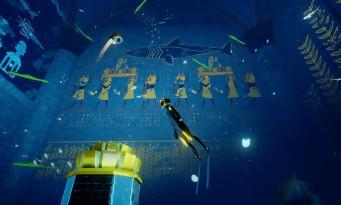 Some will also not hesitate to redo the adventure from one end to the other, just to approach it with another look once the scenario has been discovered. Defect, however, more inexcusable than the lifespan: the management of controls seems somewhat buggy on PC. While the game's Steam page says a controller is highly recommended, the game never managed to detect ours. We therefore fell back on the keyboard/mouse pair, which works very well, apart from two details: the on-screen help indications that appear at the very start of the game continue to refer to the commands of a gamepad, and the game is disturbed by azerty keyboards (even the famous combination alt + shift is not enough to solve the problem). We hope that a patch will quickly correct this, because it would be a shame for pecists to have to deprive themselves of such a memorable adventure!
Some will also not hesitate to redo the adventure from one end to the other, just to approach it with another look once the scenario has been discovered. Defect, however, more inexcusable than the lifespan: the management of controls seems somewhat buggy on PC. While the game's Steam page says a controller is highly recommended, the game never managed to detect ours. We therefore fell back on the keyboard/mouse pair, which works very well, apart from two details: the on-screen help indications that appear at the very start of the game continue to refer to the commands of a gamepad, and the game is disturbed by azerty keyboards (even the famous combination alt + shift is not enough to solve the problem). We hope that a patch will quickly correct this, because it would be a shame for pecists to have to deprive themselves of such a memorable adventure!





